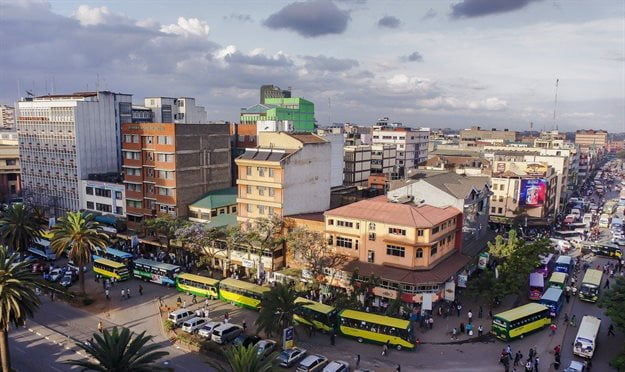As emissions from African transport surge, governments need to find ways to encourage a shift to cleaner, healthier electric vehicles, especially among the minibus and motorcycle taxis that dominate transport in many cities, researchers said on Thursday, 13 May.
Investment in generating more solar-powered electricity to charge electric vehicles (EVs) could encourage their use, cut pollution and costs for passengers, and help stabilise unreliable energy systems, they said in a commentary published in Nature Sustainability.
But most African governments lack the data on privately run mass transport systems needed to make the case for financial institutions and development banks to put money into building electric charging infrastructure, they added.
Co-author Katherine Collett, a fellow with the Oxford Martin Programme on Integrating Renewable Energy, described it as a “chicken and egg” problem.
“Nobody wants to invest in electric vehicle charging before there are enough EVs to make it profitable. But nobody wants to buy an EV that they are unable to charge,” she said in a statement.
The University of Oxford researchers noted that in 2018, carbon dioxide emissions from Sub-Saharan Africa contributed only 2.3% of global emissions. Less than 12% of those African emissions came from transport.
Road transport demand set to increase
But with populations growing, migration to cities from rural areas accelerating and the continent’s middle class expanding, demand for road transport in the region will increase, they said.
“Unless there is disruption to business-as-usual, the related emissions will also increase,” the commentary said, calling for “urgent action” to find ways of decarbonising of transport in Sub-Saharan Africa.
Transport emissions in Africa grew by 84% between 2010 and 2016, the researchers noted, citing data from the Belgium-based Partnership on Sustainable, Low Carbon Transport.
From Kenya to South Africa, where both ownership of private family cars and official public transport is limited, the majority of urban journeys are undertaken using informal private transport – often old and imported second-hand minibus taxis or two- and three-wheeled vehicles.
Mostly, the drivers do not follow formal, fixed routes and many vehicles are not properly registered, making for poorly documented systems and a “drastic lack” of data, the paper said.
At the same time, many poorer areas have limited access to electricity or struggle with frequent grid power outages, which would make reliable electric vehicle charging a challenge.
Solar-based solution
The best solution in many places would be to install off-grid solar panels alongside charging points, said the researchers, noting Africa’s abundant sunshine, the need to curb planet-warming emissions and the falling price of technology.
They also recommended mandatory vehicle registration and insurance, along with GPS tracking for informal transport operators.
Governments, meanwhile, should promote the use of cashless payments and mobile apps to better track and understand transport user behaviour.
Such changes would generate data to demonstrate the market size and business opportunities for electricity companies, EV manufacturers and other firms that could, for instance, retrofit existing vehicles with batteries, the researchers added.
“Cleaner air, cheaper transport and stable access to electricity is within grasp for Sub-Saharan Africa – we just need to mobilise the data and investment to make it happen,” said co-author Stephanie Hirmer of the University of Oxford’s Energy and Power Group.
